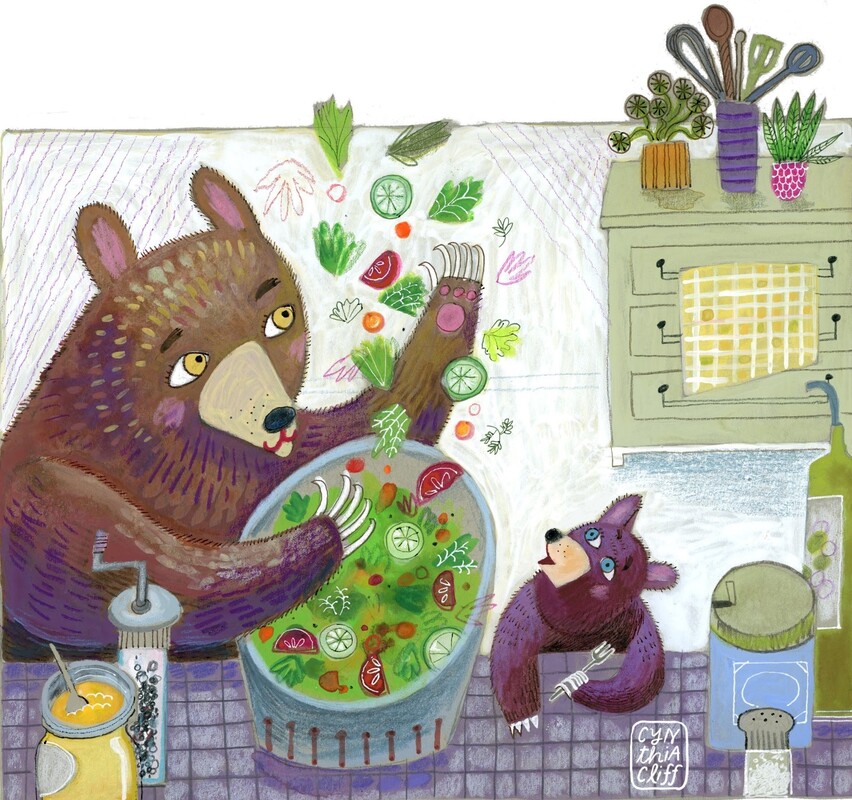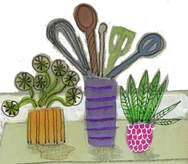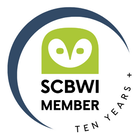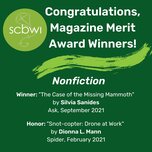Now, I know what you’re thinking. You’re thinking—Dionna, why are you wasting your writing time watching the veg-tube? My reply? This is writing research, not time wasted! I’ve gleaned a lot about the writing process by watching Chopped. Really.
For example:
Don’t forget the salt
We all know how important it is to add the right amount of salt to a dish, right? But I’ve seen many an episode when a classically trained chef forgets the essential dash, leaving the food, while beautiful, full of blah. Writing lesson learned? Don’t forget to add sensory delight to every scene by engaging all five senses, including taste!
Transform the ingredients
Chefs on Chopped are often given the strangest of mystery ingredients. Sometimes, I’m like, really? Artificial spray cheese? But a skilled chef can do it! He can turn that gloopy yellow goo into yum. How? Creativity combined with freshness. (FYI: artificial spray cheese makes delicious creamed kale.) My takeaway? Writers can spin original plot lines into something new by being creative.
Add some fat
I’ve seen quite a few chefs rise to the challenge when the basket is inherently lean, like say there are Rocky Mountain oysters in there. (Can you believe people actually eat bull testicles? Ewww!) A chef will slice them thin and deep fry them in sizzling oil. Readers like the taste of “fat,” too. They want stories full of emotion. Fat is where it’s at in a good way, at least when it comes to writing.
Sauce it together
I’ve seen chefs on the show rise to the top by using the unique flavor profile of an ingredient, like preserved rice juice, to create a delicious sauce that ties their dessert together. Writing lesson? We can tie our scenes together with a “sauce,” a theme, a setting, a mood.
Besides the basket ingredients, chefs on the show are encouraged to use fresh ingredients from the Chopped pantry in their dish. But if they add too many—say, a whole lot of chocolate to mask the taste of durian—the judges will ding them. They actually want to be able to taste the ingredients found in the basket, even if it’s a foul-smelling Asian fruit. Lesson: as writers, we should remind ourselves not to overwhelm a scene or dialogue with unnecessary details or description. Less is more basket.
Be true to yourself
Chopped champions are often those who stay true to their own style of cooking, like the one who borrowed his babcia’s chrusciki recipe, or the one who created her naani’s curry blend. The recipe for success as writers? Take a lesson from Granny. Mine from your culture, your homeplace, your language, your ancestry to create stories uniquely your own.
Tantalize the taste buds
I love it when chefs on Chopped create something so yummy, so scrumptious, that it leaves the judges saying, “I can’t stop eating this.” As writers, shouldn’t we try to do the same—leave our readers not just satisfied by the story’s end, but wishing for a sequel?
Remember all the ingredients
To avoid leaving a mystery ingredient off the plate, I’ve seen many a chef on Chopped count their ingredients before Ted, the host, says, “Please, step back.” (I can’t tell you how many times I’ve been left holding my breath, hoping that chef won’t forget those caramelized hot dogs hiding beneath their station!) As writers, we should enumerate, too. Have we included all that makes a story a story? Do we have a main character wanting something and doing something to get it; does he have an obstacle in his way and something at stake if he doesn’t obtain it?
Count.
Taste your food
Tasting as you go along is a secret to success in any kitchen. Writers should also “taste” their words as they go along by reading them out loud.
There are many more writing lessons from Chopped begging to be shared.
Writers cookbook, anyone?













